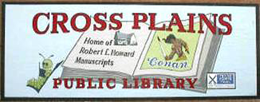"Station Eleven" by Emily St. John Mandel

A new NEA Big Read selection, “Station Eleven” was chosen by our book club to “test the waters” and see if we would like to base our next Big Read on this title. It is a somewhat dystopian post-apocalyptic novel that begins with the night a pandemic hits the world and destroys 99.9% of the human population. The story centers around actor Arthur Leander, his death, and the characters that weave in and out of his life before the pandemic and the 20 years following. At times it is hard to follow the sequence of events as the author jumps back and forth between the past, present and future. Most of the novel is set in the post-apocalypse, where a troupe of Shakespearean actors -called The Symphony-travel through Canada, forming a family – since their own families were wiped out in the plague.
Mandel gives a good accounting of what life would be like without our current technology, and with the isolation of some survivors left to fend for themselves.
The requisite protagonist is a cult leader who calls himself The Prophet and rules over the town of St. Deborah by the Water. When The Symphony arrives, he threatens them and follows them with evil intentions. The Symphony races to reach a haven formed in an isolated Chicago airport, where stranded passengers have started a new “city” and organized a “Museum of Civilization.” In the Museum travelers have left articles from the former world - credit cards, cellphones, passports, laptops - so that the next generation can see what the world use to be. Later we discover the identity of The Prophet and how his life is woven in with the others.
One of the main characters carries a comic book starring “Dr. Eleven,” a physicist who travels around on a space station after aliens took over the Earth. This book was written by Arthur Leander’s first wife and provides the sub-plot for a parallel universe to the current collapse of civilization.
The dynamics of the “family” and the new “city” formed by those stranded at the airline terminal make for interesting reading. Mandel does an excellent job of showing how our lives are interconnected, even when only 0.1% of civilization remains. However, in the end, our book club decided against the novel for the next NEA Big Read – seems I was the only one who enjoyed it. I thought of our town and how only nine people would exist here – what would we do? Band together or live in isolation?
